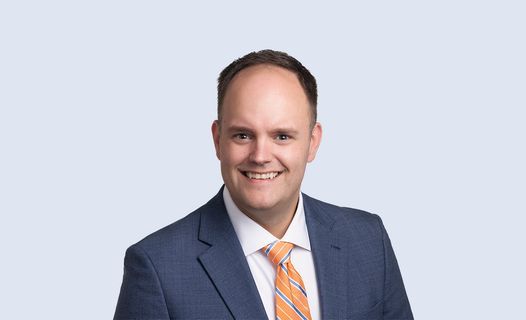The National Labor Relations Board (NLRB) just sued New York over its new labor law that attempts to regulate areas that the Board claims are “explicitly reserved for federal oversight.” As more states consider measures to protect workers as federal labor regulation remains uncertain, the NLRB is making its stance clear through its September 12 lawsuit by arguing these types of measures are preempted by the National Labor Relations Act (NLRA). We’ll explain everything that employers and labor practitioners need to know.
Quick Background
For most of this year, the Board has lacked the three-member quorum it needs to adjudicate cases or set new legal precedent. (Get caught up by reading our prior insights here, here, and here). On top of the quorum issue, a federal appeals court recently halted the NLRB from prosecuting unfair labor practice complaints as several courts hear constitutional challenges to the agency’s structure.
In response, several states have moved to assert or expand their own jurisdiction in areas reserved for the Board under the NLRA. Much of the push for state legislation is from labor proponents (including many unions) pointing to the fact that the NLRB isn’t functioning as designed. The lack of quorum means significant case-processing delays, which labor advocates argue leaves workers without remedies.
However, even if the NLRB is hamstrung, Congress has not delegated states the power to regulate private sector labor. This makes state attempts to do so subject to challenges under an argument they are preempted by the NLRA.
New York Law Allows State to Oversee Labor Disputes in the Private Sector
Gov. Kathy Hochul signed a bill into law on September 5 to boost the state’s labor power (read more here). It immediately allows the state’s Public Employment Relations Board (NY PERB), which typically has authority only over the state’s public sector employees, to step in over labor relations matters in the private sector if the Board does not “successfully assert jurisdiction.” Core changes include:
- Employees who are covered by the NLRA had long been excluded from coverage under the State Employment Relations Act (SERA). However, S8034A amended SERA to exclude such employees only when the NLRB “successfully asserts jurisdiction over any employer, employees, trades, or industries” through a federal court order.
- The NY PERB may now certify exclusive bargaining representatives of bargaining units previously certified by another state or federal agency, maintain existing terms of employment during the verification process, and take jurisdiction over private employer‐employee labor relations when the NLRB does not successfully assert jurisdiction.
NLRB Sues New York, Claims S.8034A is Unconstitutional
The NLRB is now asking a federal court to strike down New York’s new labor law as unconstitutional. It is also asking the court to temporarily block the state and the NY PERB from enforcing it while the lawsuit plays out in court. In a September 12 complaint, the NLRB claims that:
- the New York law is preempted by the NLRA under the Supremacy Clause of the Constitution, which provides that federal law supersedes conflicting state laws on the same subject; and
- under Supreme Court precedent, states are prohibited from regulating any activity that the NLRA “protects, prohibits or arguably protects or prohibits,” and that S.8034A “creates an instant conflict with the federal scheme because it disrupts the NLRB’s exclusive authority to regulate most private sector labor relations.”
These arguments are not new, and federal courts have consistently sided with the Board in holding that states may not impinge upon its right to regulate conduct that is even “arguably” protected by the NLRA. States have attempted to skirt this constitutional polestar by stepping in only if the Board relinquishes its jurisdiction to enforce private sector labor law, but the NY law takes it one step further by requiring the NLRB to affirmatively assert jurisdiction – and allowing the state to step in if it doesn’t.
Other State Measures on the Horizon
Lawmakers in other states (and even some localities – see, for example, this Pennsylvania county’s bold new “Worker Protections” order) are also attempting to fill perceived gaps in federal labor regulation. Below is a look at a new California law taking effect January 1 and a bill under consideration in Massachusetts.
California’s New Landmark Law Will Strengthen Private-Sector Labor Protections
Gov. Gavin Newsom signed a bill (AB 288) into law on September 30 that will soon expand the jurisdiction of the California Public Employment Relations Board (CA PERB), which is currently limited to state government employees, to private sector employees. Starting in 2026, CA PERB will be authorized to decide unfair labor practice cases (and order appropriate relief for violations, including civil penalties) in the private sector when the charge or petition is brought by a worker who:
- is employed in a position covered by the NLRA as of January 1, 2025; and
- loses coverage under the NLRA because the federal law is repealed or narrowed, or because the NLRB has ceded jurisdiction to the states.
Under the new law, the NLRB will be deemed to have ceded jurisdiction to the states in the following circumstances:
- for cases involving certain election issues, when the NLRB lacks a quorum or has lost its independence as a result of a Supreme Court finding that Board members are unconstitutionally protected from removal, or when the processing of the case is enjoined due to constitutional challenges to the Board’s structure or authority;
- when processing delays cause a worker’s case to be pending for more than six months after a complaint has been issued without decision;
- for cases where the certification of the results of an election or other reviewable order has been issued by the regional director or administrative law judge, when, due to processing delays, the NLRB does not accept or decline review or grant special permission to appeal for more than six months after the request is filed; and
- for cases on review or exceptions before the NLRB, when processing delays result in the case remaining pending for more than 12 months without a final decision.
You can find the official press release on the governor’s signing of AB 288 here.
[Ed. Note: The NLRB is now challenging AB 288 in a federal district court in California. In a lawsuit filed on October 15, the agency asked the court to strike down the new labor law as unconstitutional and to temporarily block California and CA PERB from enforcing it while the lawsuit plays out in court.]
Massachusetts Lawmakers Consider Sweeping “Protect LABOR Act”
State lawmakers are considering a bill (H.2086/S.1327) – known as the Protect LABOR Act – that would enshrine key aspects of the NLRA into state law. So far, the bill has only passed in the House, but it is by far the most sweeping of state proposals for worker protections that kick in when federal protections fall short. For example, the Protect LABOR Act would:
- apply when the NLRB determines that any employer, employee, trade, or industry falls outside of the NLRA’s jurisdiction or otherwise declines jurisdiction, or if the Massachusetts legislature declares that federal law does not preempt the state law.
- expand the definitions of “employer” and “employee” and create a presumption of employment for any individual performing a service unless certain narrow criteria are met.
- allow the state Department of Labor Relations to certify unions recognized under pre-existing federal law and to certify new unions if the NLRB’s status is imperiled.
- include many pro-labor provisions, which would, among other things, ban so-called “captive audience” meetings during certain “critical” periods, permit electronic signatures for purposes of union authorization cards, and allow unions to conduct representation elections remotely using electronic voting systems.
Stay tuned to see whether this bill is ultimately passed and signed into law.
Conclusion
We will continue to monitor developments and provide updates as warranted, so make sure you are subscribed to Fisher Phillips’ Insight System to get the most up-to-date information. If you have questions, please contact your Fisher Phillips attorney, the authors of this Insight, or any attorney in our Labor Relations Practice Group.




